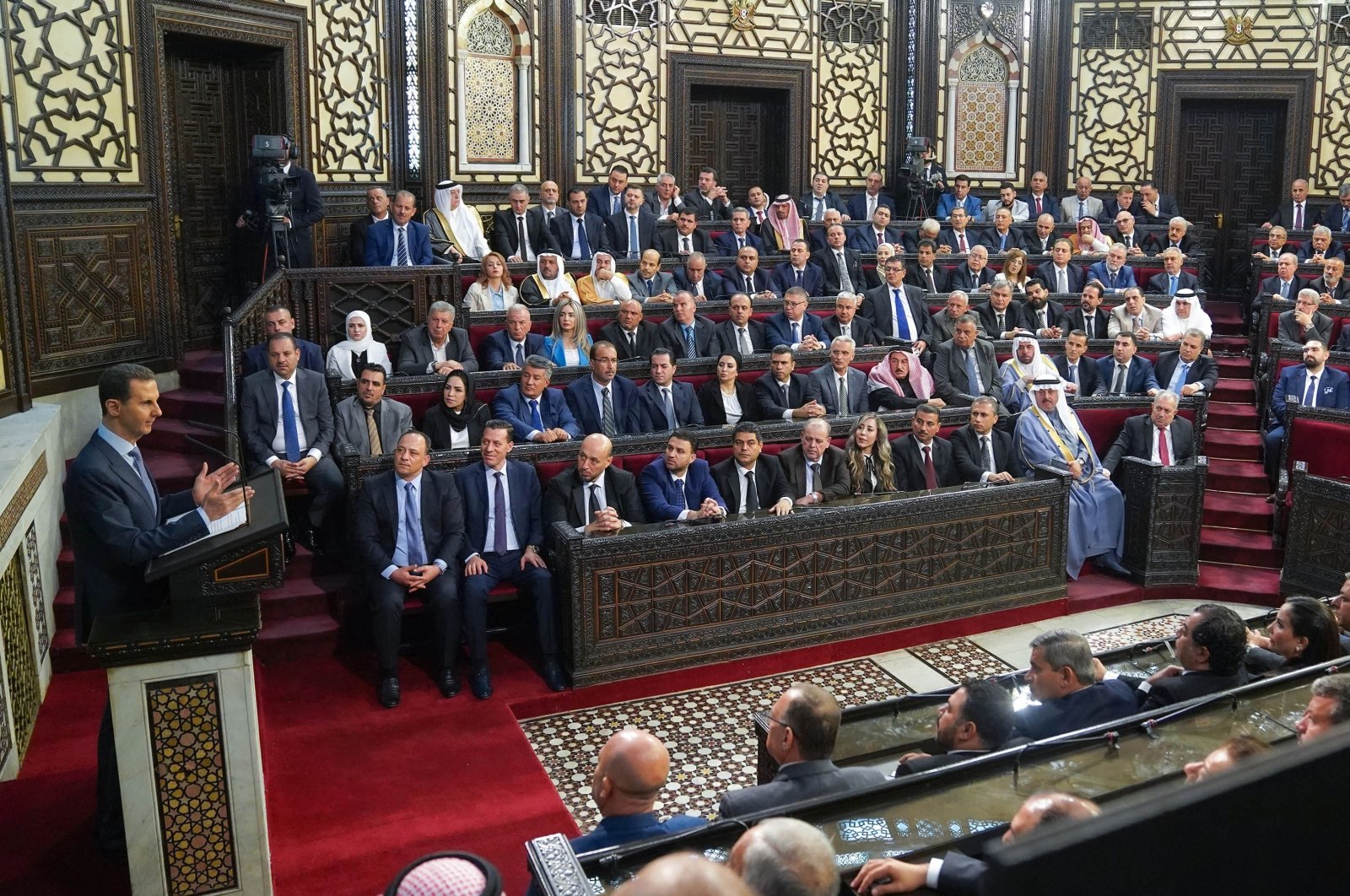
Diplomatic sources say a realistic approach may pave the way for full normalization with Syria, listing a number of conditions in response to Assad’s recent remarks that troop withdrawal is not a prerequisite for talks
Syrian leader Bashar Assad openly addressed the normalization process with Türkiye in a recent speech to his regime’s Parliament. Although he acknowledged that efforts to restore ties have yet to yield results, Assad underlined that the withdrawal of Turkish troops from Syria was not a precondition for normalization talks. Ankara has been quiet on the matter since Assad’s speech, but diplomatic sources talking to Turkish media on Wednesday reiterated the country’s unchanged stance on normalization.
Sources say a realistic approach is needed for further normalization, adding that Türkiye and Syria had multifaceted, improving relations before 2011. Türkiye severed ties with Syria in 2011 after the outbreak of the Syrian civil war, in which it supported the opposition.
"The solution is openness," Assad said. "Restoring a relationship requires first removing the causes that led to its destruction."
Diplomatic sources told broadcaster TRT Haber that one of the conditions for full normalization is eradicating terrorism in Syria while maintaining the country’s territorial integrity and unity. They were referring to YPG, the Syrian wing of the PKK terrorist group, which has killed thousands in Türkiye since the 1980s.
After the 2011 unrest, the PKK/YPG exploited a power vacuum in northeastern Syria and took hold of swathes of land, creating a self-styled entity. It found a major ally in the United States, which views the terrorist group as fighters helping them eliminate Daesh, another terrorist group that took control of several towns in the same region after the civil war broke out. Although it also found favor with some local tribes at first, the PKK/YPG, which tried to legitimize its presence by creating an umbrella body named "Syrian Democratic Forces," its tyranny in the northeast pushed some tribes to take up arms against the group, resulting in sporadic clashes.
Türkiye deployed troops in Syria’s north to assist the Syrian opposition forces to stave off the occupation by the PKK/YPG. Successful military operations by the Turkish army drove away the PKK/YPG from most towns close to the Turkish border. Ankara says having the PKK/YPG immediately across its border is a grave concern both for Turkish border towns that suffered from PKK/YPG attacks in the past and for wider Türkiye. Authorities have captured several terrorists infiltrating Syria in recent years, including a woman who planted explosives that killed six people on a busy Istanbul street two years ago.
Damascus has repeatedly voiced its opposition to the presence of Turkish troops, saying it violates its sovereignty. The troops do not retain control of any Syrian territory but help Syrian opposition forces while occasionally taking part in patrols with troops from Assad’s main ally, Russia, to protect a safe zone in the north.
Sources also said the Syrian regime should reach a genuine national reconciliation with its people, based on said people’s legitimate demands and under U.N. Security Council Resolution 2254. The resolution adopted in 2015 calls for a cease-fire and political settlement in Syria. Such a settlement will pave the way for the return of the displaced. Diplomatic sources say the Assad regime should create the necessary conditions for the dignified and safe return of the displaced.
Türkiye hosts the world’s largest Syrian refugee community. It was initially housed in tent camps set up near the border. The community grew and now lives mostly in big cities while some sought to illegally cross into Europe through dangerous journeys via the Aegean Sea. Syrians make up 3.1 million of the 4.4 million people registered as refugees and foreigners in the country. A large number of refugees gave rise to the far-right in the country, which is blamed for recent riots targeting Syrians in central Türkiye.
Türkiye’s military operations, which ensured the safety of towns in Syria’s north, accelerated the return of refugees to their homeland while Ankara cooperated with other countries and charities to build new homes in the war-torn countries for more returns. Official figures by the Interior Ministry show more than 132,000 Syrian refugees returned to their country last year, and the total number of people who returned to Syria in the past five years exceeded 687,000.
Sources say that the Assad regime should also ensure no disruption to humanitarian aid to the country. In July, the government extended permission for a U.N. agency to use a border crossing with Türkiye to deliver humanitarian aid.
For the first time since relations soured, President Recep Tayyip Erdoğan in July said Türkiye would extend a formal invitation to Assad, who was once a close friend. Russia has been trying to facilitate a meeting between the two leaders to restore ties. Iraq also said in July that it may seek to try to bring the two leaders together. His invitation came after the Syrian leader in June said Damascus was open to all initiatives to revive Turkish-Syrian relations "as long as they are based on respecting the sovereignty of the Syrian state over all its territory and fighting all forms of terrorism.” The Damascus-based regime and Ankara sought reconciliation in 2023 with talks sponsored by Assad’s main backers, Russia and Iran, but so far, meetings of Turkish and Syrian ministers have failed to produce a solid result in normalization.
